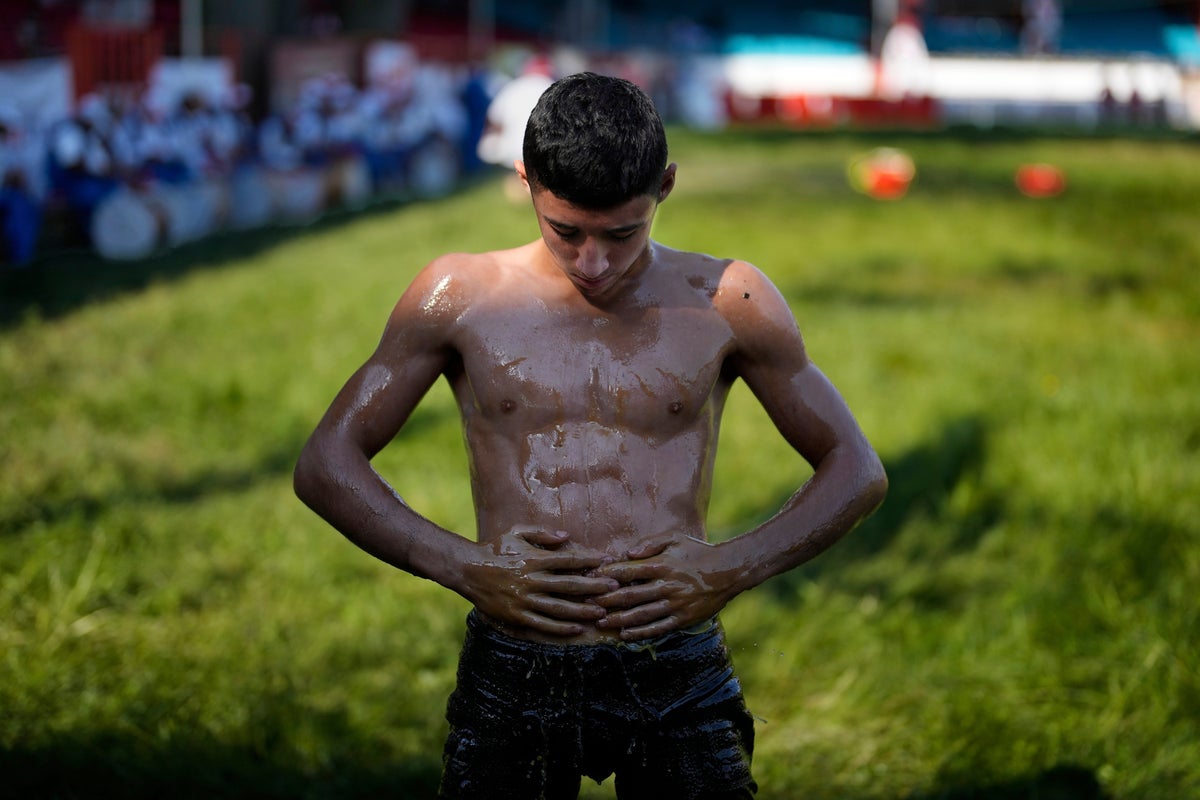From reproductive rights to climate change to Big Tech, The Independent is on the ground when the story is developing. Whether it’s investigating the financials of Elon Musk’s pro-Trump PAC or producing our latest documentary, ‘The A Word’, which shines a light on the American women fighting for reproductive rights, we know how important it is to parse out the facts from the messaging.
At such a critical moment in US history, we need reporters on the ground. Your donation allows us to keep sending journalists to speak to both sides of the story.
The Independent is trusted by Americans across the entire political spectrum. And unlike many other quality news outlets, we choose not to lock Americans out of our reporting and analysis with paywalls. We believe quality journalism should be available to everyone, paid for by those who can afford it.
Your support makes all the difference.
Read more
On a grass field slick with olive oil and steeped in tradition, hundreds of boys as young as 11 joined the ranks of Turkey’s most time-honored sporting event: the annual Kirkpinar Oil Wrestling Championship.
Held every summer in the northwestern city of Edirne, the event is said to date back to the 14th century as a way of keeping the Ottoman Empire’s fighting men fit and ready for battle.
The sport, which is on UNESCO’s intangible cultural heritage list, sees wrestlers cover themselves in olive oil and try to press their opponent’s back to the ground to win the bout.
Alongside the men contesting, youngsters also don the iconic “kispet” leather trousers to embark on a slippery test of strength, skill and stamina under the scorching sun.
The boys are ranked in divisions based on age, height and build, with the youngest generally placed in the “minik,” or tiny, category. Under strict safety regulations, their matches are shorter and closely supervised.
Most young wrestlers train year-round at local clubs, often in towns where oil wrestling is passed down through generations.
While the youngest competitors aren’t wrestling for titles like “baspehlivan,” the grand champion of the men’s matches, their participation is no less significant as it is key to the continuity of a sport that holds deep cultural importance across Turkey.
This year’s contest – the 664th in its history – saw 36-year-old Orhan Okulu win his third men’s title.
“My goal was the golden belt in Kirkpinar and thanks to my God, I succeeded,” Okulu said of the coveted prize.
